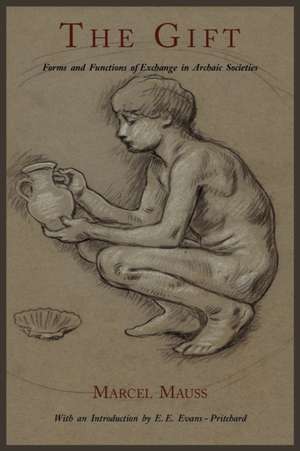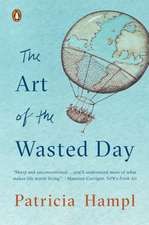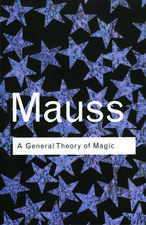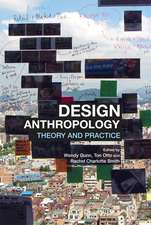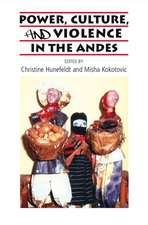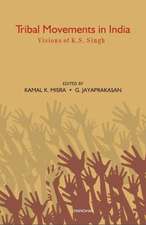The Gift
Autor Marcel Maussen Limba Engleză Paperback – 12 iul 2011
| Toate formatele și edițiile | Preț | Express |
|---|---|---|
| Paperback (5) | 83.09 lei 3-5 săpt. | |
| W. W. Norton & Company – 31 iul 2000 | 83.09 lei 3-5 săpt. | |
| HAU – 15 mai 2016 | 102.05 lei 3-5 săpt. | +14.83 lei 6-12 zile |
| Taylor & Francis – 11 oct 2001 | 108.77 lei 3-5 săpt. | +10.37 lei 6-12 zile |
| Martino Fine Books – 12 iul 2011 | 120.87 lei 39-44 zile | |
| Martino Fine Books – 20 apr 2011 | 122.86 lei 39-44 zile | |
| Hardback (2) | 188.30 lei 6-8 săpt. | |
| Bibliotech Press – 14 iul 2020 | 188.30 lei 6-8 săpt. | |
| Taylor & Francis – 11 oct 2001 | 627.40 lei 6-8 săpt. |
Preț: 120.87 lei
Nou
Puncte Express: 181
Preț estimativ în valută:
23.14€ • 23.85$ • 19.51£
23.14€ • 23.85$ • 19.51£
Carte tipărită la comandă
Livrare economică 24 februarie-01 martie
Preluare comenzi: 021 569.72.76
Specificații
ISBN-13: 9781614271239
ISBN-10: 1614271232
Pagini: 146
Dimensiuni: 152 x 229 x 9 mm
Greutate: 0.22 kg
Editura: Martino Fine Books
ISBN-10: 1614271232
Pagini: 146
Dimensiuni: 152 x 229 x 9 mm
Greutate: 0.22 kg
Editura: Martino Fine Books
Descriere
2011 Reprint of 1954 American Edition. Full facsimile of the original edition, not reproduced with Optical Recognition Software. This is perhaps the first systematic study of the custom, widespread in primitive societies from ancient Rome to present-day Melanesia, of exchanging gifts. The gift is conceived as a transaction forming part of all human, personal relationships between individuals and groups. These gift exchanges are at the same time moral, economic, juridical, aesthetic, religious, mythological and social phenomena. A classic work.
Notă biografică
Marcel Mauss (1872-1950) was a French sociologist and anthropologist and is known for crossing the boundaries between the two, as well as being highly influential in the field of ethnology.
Cuprins
Foreword: Puzzles and Pathways by Bill Maurer
Translator’s Introduction: The Gift that Keeps on Giving by Jane I. Guyer
Part I: In Memoriam
In Memoriam: The Unpublished Work of Durkheim and His Collaborators
Part II: Essay on the Gift: The Form and Sense of Exchange in Archaic Societies
Introduction: Of the Gift, and in Particular of the Obligation to Return Presents
Chapter 1: The Gifts Exchanged and the Obligation to Return Them (Polynesia)
Chapter 2: The Extent of This System: Liberality, Honor, Money
Chapter 3: Survivals of These Principles in Ancient Law and Ancient Economies
Chapter 4: Conclusion
Part III: Selected Reviews
A Selection of Reviews by Marcel Mauss
Translator’s Introduction: The Gift that Keeps on Giving by Jane I. Guyer
Part I: In Memoriam
In Memoriam: The Unpublished Work of Durkheim and His Collaborators
Part II: Essay on the Gift: The Form and Sense of Exchange in Archaic Societies
Introduction: Of the Gift, and in Particular of the Obligation to Return Presents
Chapter 1: The Gifts Exchanged and the Obligation to Return Them (Polynesia)
Chapter 2: The Extent of This System: Liberality, Honor, Money
Chapter 3: Survivals of These Principles in Ancient Law and Ancient Economies
Chapter 4: Conclusion
Part III: Selected Reviews
A Selection of Reviews by Marcel Mauss
Recenzii
"Among the most welcome features of this third English translation of Mauss’s classic is Jane Guyer’s decision to re-embed the Essai sur le don: forme et raison de l’échange dans les sociétés archaiques in its original setting in the journal L’Année Sociologique as published in 1925. Her translation and discussion of some of the original framing materials (twenty pages of moving tributes to deceased colleagues before the Essai, and another twenty pages of book reviews at the end) demonstrate more effectively than the earlier English editions both the significance of the timing of this publication in the aftermath of the Great War and its centrality to the Durkheimian school. It was not possible to include all of the voluminous book reviews, and some of the excerpts are extremely brief, but, with the help of research assistants, Guyer has managed to track down the original English of most of Mauss’s quotations. Unlike previous translators, she contributes a substantial introduction, in which she elaborates on the difficulties of rendering Mauss’s text in English."
"Guyer’s decision to produce a new translation arose from a conviction that this contextualization—particularly the memorial and select reviews from Mauss—is critical for understanding The Gift itself.
Mauss, Guyer argues, was writing out of an urgent need to find inspiration from other parts of the world, that Europeans might learn “to confront one another without massacring each other” (2016: 197). The new translation thus importantly changes the emphasis within the text. What was a round-the-world-ticket collection of notable instances of exchange—the accuracy and veracity of which have already been endlessly debated—emerges as a passionate political treatise written at a poignant moment in European history."
"When is ethnographic theory? At a time at which so much of our theoretical development involves rethinking our disciplinary past, our answer might involve a kind of museum archaeology. Just as the archaeologist understands a museum object as the duration of an idea, so too anthropological knowledge can be conceived as a form of revisitation: a mediated, political and transformative return (Hicks 2016). In 1972, Marshall Sahlins wrote that Mauss’s Essay ‘remains a source of an unending ponderation for the anthropologist du metier, compelled as if by the hau of the thing to come back to it again and again’ (Sahlins 1972: 149). Today, we might use Mauss’s account of archaism to reimagine residuality and reciprocity. Mauss and Guyer show us that the translator is always both donor and recipient. There is a force, just like the force in the gift, in anthropological knowledge. The return of ethnographic theory brings new obligations to our disciplinary past, through the fulfilment of which that past and our present become less stable than we might imagine."
